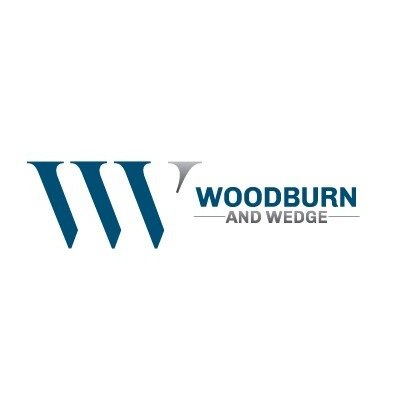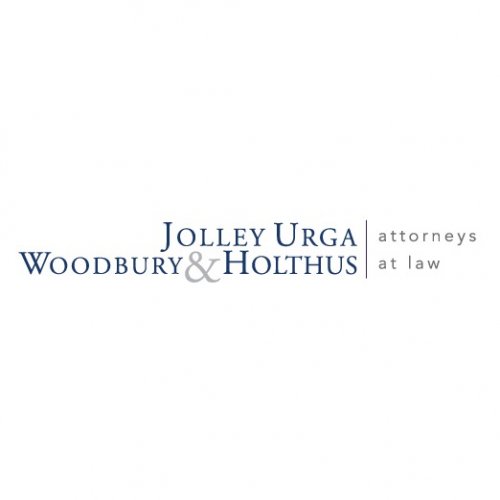Best Foreclosure Lawyers in Nevada
Share your needs with us, get contacted by law firms.
Free. Takes 2 min.
Free Guide to Hiring a Real Estate Lawyer
Or refine your search by selecting a city:
List of the best lawyers in Nevada, United States
About Foreclosure Law in Nevada, United States
Foreclosure in Nevada is the legal process by which a lender seeks to recover the balance of a loan from a homeowner who has stopped making mortgage payments. This is typically done by forcing the sale of the home used as collateral for the loan. Nevada follows a largely non-judicial foreclosure process, meaning lenders do not have to go to court to foreclose, although judicial foreclosures are possible in some cases. The laws are designed to protect both lenders and borrowers, but the process can be swift, making it essential for homeowners to understand their rights and obligations under Nevada law.
Why You May Need a Lawyer
Facing foreclosure can be stressful and confusing. A lawyer can help you understand your options, protect your rights, and potentially help you keep your home. Common situations in which you might need legal assistance include:
- Receiving a Notice of Default or Notice of Sale
- Disputing the validity of foreclosure proceedings
- Negotiating loan modifications or forbearance agreements
- Identifying lender errors or predatory lending practices
- Filing for bankruptcy to stop foreclosure
- Facing eviction after foreclosure
- Understanding deficiency judgments and your liability
An attorney experienced in foreclosure law can guide you through your options and may even be able to delay or stop the process in certain circumstances.
Local Laws Overview
Nevada’s foreclosure laws are governed by both state statutes and federal regulations. Here are key aspects you should know:
- Non-judicial foreclosure: Most foreclosures in Nevada are conducted outside the court system, which can lead to quicker timelines compared with judicial foreclosures.
- Notice requirements: Lenders must provide a Notice of Default and Intent to Sell, followed by a Notice of Sale if the default is not cured. Homeowners typically have at least 90 days from the Notice of Default before the sale can proceed.
- Right to reinstate or cure: Homeowners have the right to bring the loan current at any time prior to the sale.
- Foreclosure mediation: Nevada offers a Foreclosure Mediation Program for eligible homeowners facing foreclosure of owner-occupied homes. This program is meant to encourage resolution between borrowers and lenders.
- Deficiency judgments: In certain cases, lenders may seek a deficiency judgment, which is the difference between the sale price and the outstanding debt. There are statutory limits on when and how a deficiency can be pursued.
- Eviction after foreclosure: Once a property is foreclosed, former owners may face eviction. The eviction process is governed by additional rules and timelines.
Frequently Asked Questions
What is the difference between judicial and non-judicial foreclosure in Nevada?
Non-judicial foreclosure is the primary process in Nevada and does not involve court action, making it faster and often less expensive. Judicial foreclosure happens through the court system and may occur under special circumstances, such as the absence of a power of sale clause in the mortgage.
How soon can foreclosure start after missing a payment?
Lenders can initiate foreclosure after a homeowner is 120 days delinquent, in accordance with federal law. However, they will typically reach out to attempt resolution before filing a Notice of Default.
What is a Notice of Default?
A Notice of Default is an official document that starts the foreclosure process. It notifies the homeowner that they are in default on their loan and outlines the steps and timeline for remedying the situation.
Can I stop a foreclosure once it has started?
Yes, in many cases homeowners can stop foreclosure by bringing the mortgage current (paying overdue amounts, plus fees), negotiating a loan modification, or possibly by entering bankruptcy protection.
Am I eligible for Nevada’s Foreclosure Mediation Program?
Owner-occupants facing non-judicial foreclosure on their primary residence are typically eligible for mediation, as long as they file a timely request with the court or designated authority.
How long does the foreclosure process take in Nevada?
The non-judicial foreclosure process in Nevada can take as little as 111 days from the Notice of Default to the sale, but the process may be lengthened by mediation, negotiation, or legal action.
What happens if my home sells for less than what I owe?
If the foreclosure sale does not cover your loan balance, the lender may seek a deficiency judgment for the remainder, although Nevada law limits the circumstances and timeframes in which this can occur.
Can I stay in my home after foreclosure?
Once the home is sold at foreclosure, the new owner-often the lender-must follow legal procedures to evict former occupants. This is a separate legal process with its own notices and timelines.
What is a short sale and how does it differ from foreclosure?
A short sale occurs when a lender agrees to let the property be sold for less than the amount owed on the mortgage, often to avoid foreclosure. This can have less impact on your credit than a foreclosure, but it requires lender approval.
Will foreclosure affect my credit?
Yes, foreclosure can significantly damage your credit score and remain on your credit report for up to seven years, impacting your ability to secure loans and housing in the future.
Additional Resources
If you are facing foreclosure or want to understand your rights, consider reaching out to these resources:
- Nevada Legal Services - Offers free and low-cost legal help for foreclosure issues
- State of Nevada Foreclosure Mediation Program - Provides assistance for eligible homeowners to mediate disputes with lenders
- Nevada Attorney General’s Office - Information on homeowner rights and foreclosure prevention
- U.S. Department of Housing and Urban Development (HUD) - Approved housing counseling agencies in Nevada
Next Steps
If you are facing foreclosure or have questions about your rights and options in Nevada, consider the following steps:
- Gather all relevant documents, including loan agreements, notices from your lender, and any correspondence related to your mortgage.
- Contact a local attorney experienced in foreclosure law to discuss your situation and receive personalized advice.
- Contact housing counseling agencies and foreclosure prevention organizations for free or low-cost assistance and guidance.
- If eligible, consider applying for the Foreclosure Mediation Program before the sale date to explore alternatives to foreclosure.
- Stay proactive-respond promptly to all legal notices and do not ignore communications from your lender.
Early action can make a significant difference in protecting your rights and potentially saving your home.
Lawzana helps you find the best lawyers and law firms in Nevada through a curated and pre-screened list of qualified legal professionals. Our platform offers rankings and detailed profiles of attorneys and law firms, allowing you to compare based on practice areas, including Foreclosure, experience, and client feedback.
Each profile includes a description of the firm's areas of practice, client reviews, team members and partners, year of establishment, spoken languages, office locations, contact information, social media presence, and any published articles or resources. Most firms on our platform speak English and are experienced in both local and international legal matters.
Get a quote from top-rated law firms in Nevada, United States — quickly, securely, and without unnecessary hassle.
Disclaimer:
The information provided on this page is for general informational purposes only and does not constitute legal advice. While we strive to ensure the accuracy and relevance of the content, legal information may change over time, and interpretations of the law can vary. You should always consult with a qualified legal professional for advice specific to your situation.
We disclaim all liability for actions taken or not taken based on the content of this page. If you believe any information is incorrect or outdated, please contact us, and we will review and update it where appropriate.
Browse foreclosure law firms by city in Nevada
Refine your search by selecting a city.










